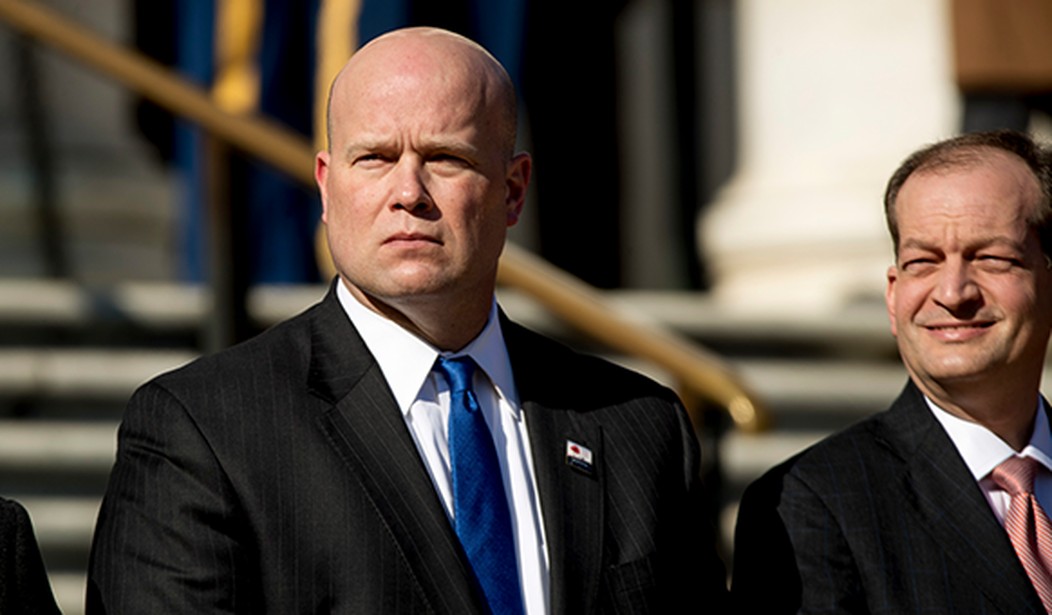Since the firing of Attorney General Jeff Sessions and the appointment of former U.S. Attorney Andrew Whitaker as his acting replacement, Democrats have been panicking over the fate of Robert Mueller's Special Counsel probe. Whitaker has been critical of Mueller in the past.
As a result, they've called into question the constitutionality of Whitaker's appointment and have argued President Trump doesn't have the authority to appoint a non-Senate confirmed individual to the acting attorney general position. Whitaker served as Sessions' chief-of-staff until last week.
It turns out, they're wrong.
"First, every Attorney General works only at the will of the President. Former Attorney General Sessions submitted his resignation last week at President Trump’s request. President Trump is entitled to nominate an Attorney General of his choosing," Senate Judiciary Committee Chairman Chuck Grassley wrote in a letter to Ranking Member Dianne Feinstein Wednesday afternoon. "While the Senate is never a rubber stamp for any president, the Senate historically gives more deference to a president on Cabinet picks. I look forward to working with the President on the confirmation effort for whomever the President nominates."
"With regard to Acting Attorney General Whitaker’s appointment, I am sure you are well aware that under the Federal Vacancies Reform Act of 1998, 5 U.S.C. §§ 3345-3349c ('Vacancies Act'), the President may direct a senior official of the agency in which the vacancy occurs to serve as the acting officer as long as that senior official served at the agency for at least 90 days prior to the appointment," he continued. "Acting Attorney General Whitaker had been former Attorney General Sessions’ Chief of Staff since August 2017. Moreover, a September 2007 legal opinion from DOJ’s Office of Legal Counsel ('OLC') confirmed that the President has the authority to appoint an agency official under the Vacancies Act. President Bush used this authority to name Peter Keisler the Acting Attorney General in 2007, although the Solicitor General at the time, Paul Clement, was 'next in line' of succession."
Recommended
In addition to justifying Whitaker's position, Grassley reiterated his belief that Mueller should complete his investigation without interference.
On Wednesday the Department of Justice issued the same, but expanded argument in a 20-page memo.
"As we have previously recognized, the President may use the Vacancies Reform Act to depart from the succession order," the memo states. "We also advised that Mr. Whitaker's designation would be consistent with the Appointments Clause of the U.S. Constitution, which requires the President to obtain 'the Advice and Consent of the Senate' before appointing a principal officer of the United States. Although an Attorney General is a principal officer requiring Senate confirmation, someone who temporarily performs his duties is not. All three branches of government have long recognized, the President may designate an acting official to perform the duties of a vacant principal office, including a Cabinet office, even when acting official has not been confirmed by the Senate."
























Join the conversation as a VIP Member